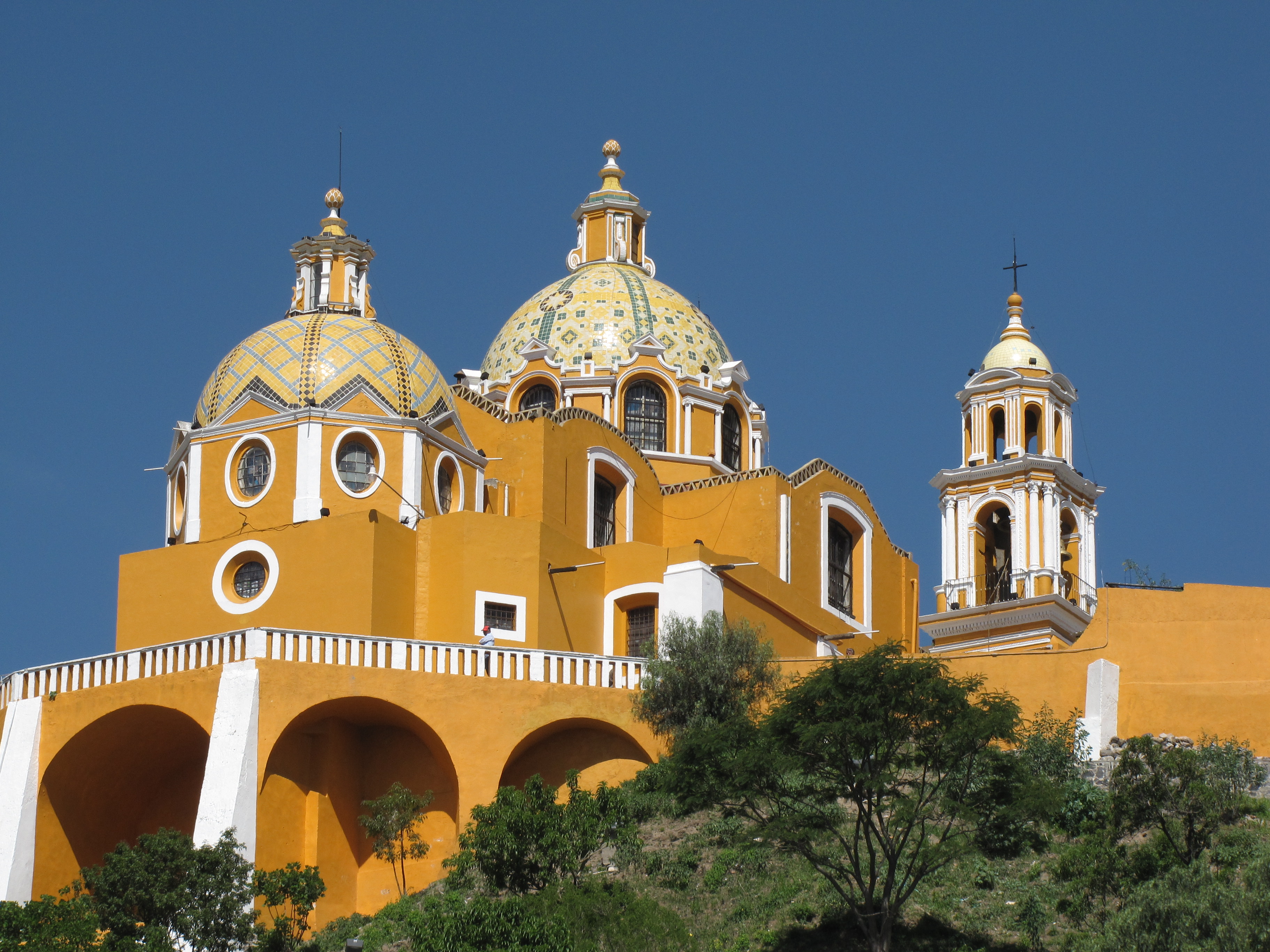Several legends tell us that angels helped build the city of Puebla, Mexico, and even the large bell on top of the cathedral was placed there by angels themselves.
Lenten Campaign 2025
This content is free of charge, as are all our articles.
Support us with a donation that is tax-deductible and enable us to continue to reach millions of readers.
There’s a place in Mexico that’s believed to have a church for every day of the year. This belief started in the 16th century, when Spanish conquerors began to build numerous chapels in the town we now know as Puebla — so many it was thought there was one for every day. Today people still say there are as many Catholic churches in this city as days in a year.
Officially there are 288 parishes in the city of Puebla, not exactly one per day, but for a territory of nearly 80 square miles, it’s still quite a big number. It’s important to note that this quantity does not include chapels, smaller shrines and oratories. If those were taken into account, could there be a place of worship for every day? Perhaps, but what’s a fact is that walking down these colonial streets is in itself a spiritual experience.
The city of Puebla is one of the cities with the most religious heritage in the country, and its large number of churches is just a small part of that history. One of the founders of the city was the bishop of Tlaxcala, Julián Garcés, who in 1530 wrote a letter to the Spanish queen stating the need to establish a town between Mexico City and Veracruz, where Catholic Spaniards could find a home.
According to the legend of the city’s founding, Garcés had a dream where a group of angels descended from Heaven to trace out the city. He then set on a quest, along with some Franciscan brothers, to find the valley he had dreamt of. When they found it, five leagues from the monastery, the city of Puebla was founded. Originally, it was called Puebla de los Ángeles (Puebla of Angels); its name was changed recently to Puebla de Zaragoza, but it’s still commonly known as the city of angels or Angelópolis. There are several legends that involve the presence of angels during the foundation and building of the city, one of the most famous being that angels themselves placed the impressively big bell on top of the cathedral.
The city of angels, artists and foodies
Aside from the impressive churches, there are many things to discover in this city located in the state of the same name in East-Central Mexico. Puebla, which has a population of over a million and a half people, is nestled between mountains and volcanoes. From every corner, it’s possible to admire two of the most important volcanoes in the country, the Iztaccíhuatl — commonly known as the sleeping woman — and the Popocatépetl, which is one of the most active volcanoes in Mexico.
One big highlight is its gastronomy. Puebla’s traditional food is one of the most beloved in the country. Mole was invented here, in the convent of Santa Rosa as a gift for a viceroy, several centuries ago. Another of the most iconic dishes in the country is the “Chiles en Nogada” (chili pepper in nogada sauce), which was created in the convent of Santa Monica to celebrate the county’s independence. It’s still served every year during the celebrations in September. These are only two examples of the magnificent local gastronomy that promises many happy palates, for both spicy food lovers and those with a sweet tooth.
For those interested in culture, there’s a large museum dedicated to Baroque art, and a neighborhood where artists display their pieces on a street market open until late at night. Traditional handcrafts are very important in this city, especially white and blue pottery called talavera, which can be found in numerous markets and boutiques. And for those who have adventurous souls, they should dare to climb the Iztaccíhuatl volcano, while learning about the legend that tells the story of a sleeping princess.
The town next to the city, called San Pedro de Cholula, is also rich in churches, and is considered one of the most important religious destinations in the continent because of the deep faith of the people, their traditions and celebrations. The town is only a 30-minute drive from the city, and it promises impressive landscapes with volcanoes on the back.
From Baroque churches, to those on top of hills
These are some of the most impressive churches every traveler should visit in Puebla:
The cathedral
Located in the city center, it’s the first big church that was built in the area. The cathedral was consecrated in 1649 and it’s dedicated to Our Lady of the Immaculate Conception. It took more than 200 years to build this impressive church of 230 feet that has five naves, more than 30 pillars, 40 vaults, and three monumental organs. One of the most impressive parts of this church is the main bell, located at the top of one of the two towers.
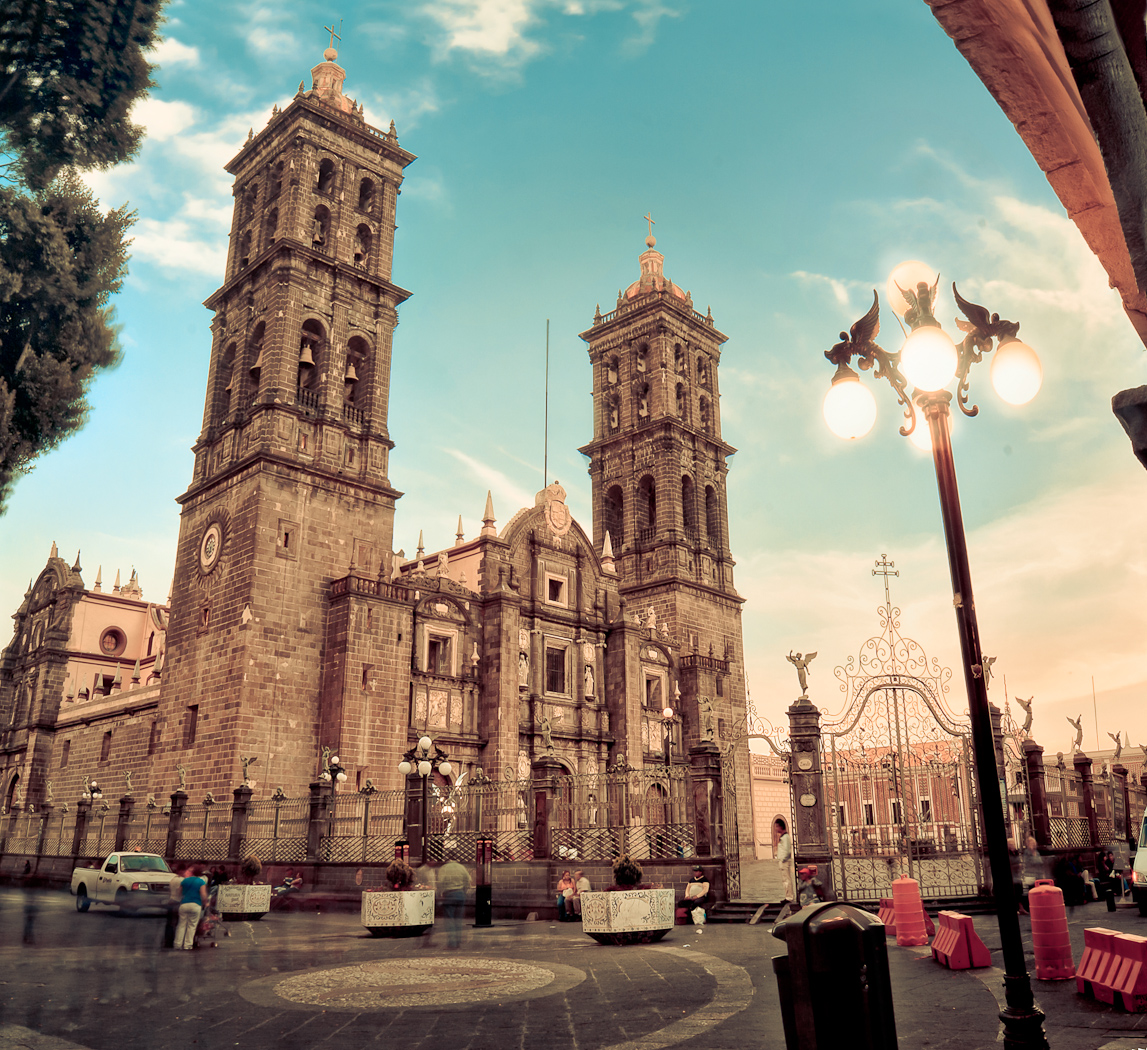
Rosary Chapel (Capilla del Rosario)
Also known as “the golden house,” this church’s interior is covered in 22K gold sheets. Aside from its religious importance, it has also been praised for its architecture, and it has even been considered a masterpiece of the Mexican Baroque. In 1979, Pope John Paul II named it “America’s Shrine.” In addition to the golden ceiling and walls, there are numerous details in onyx, paintings and local pottery called talavera, especially at the altar.
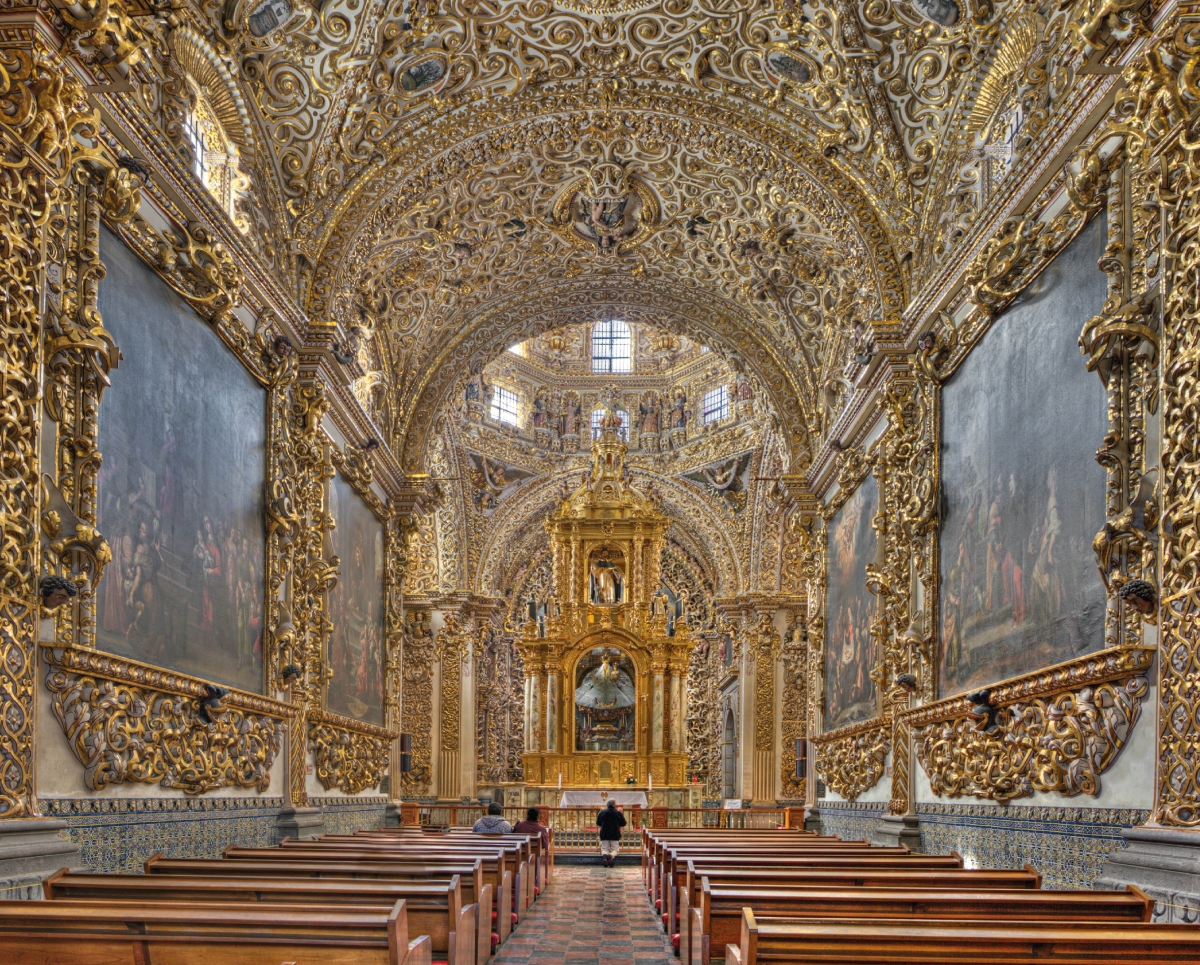
Church of Santa María Tonantzintla
This church located in Cholula was named a historical monument in 1933 because of its outstanding architecture from the 16th century. The place is covered in works of art, many of which were made by the indigenous people who used to live here. The church is also evidence of the mixing of cultures that happened between the Spanish conquerors and the local people. The outside of the church has a beautiful simplicity, but it’s not until you enter that you can really appreciate the masterpiece. Thousands of details, ornaments, paintings and sculptures have earned it the title of the most beautiful church in Puebla.
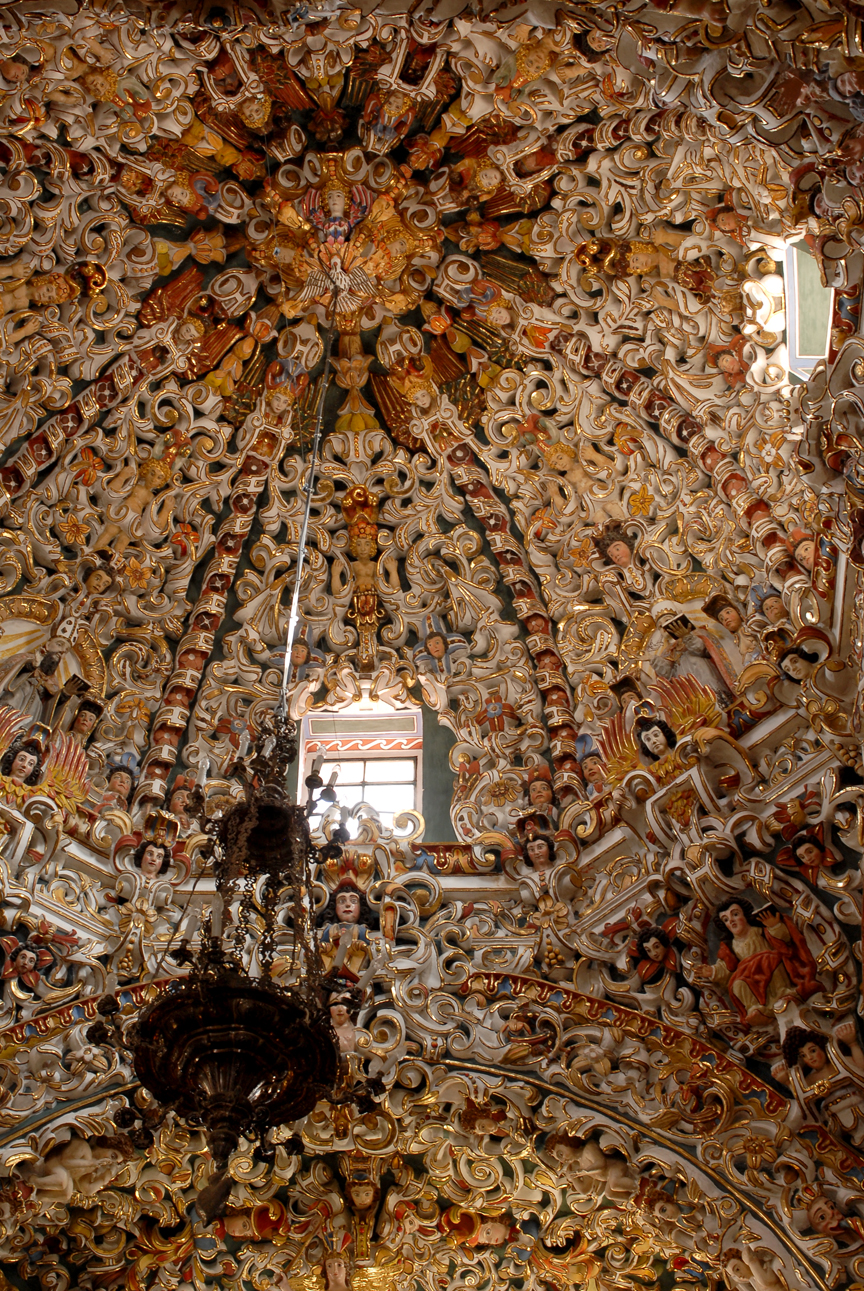
Temple of the Holy Spirit
Built by the Society of Jesus in the mid 1700s, it is the resting place of Catarina de San Juan, who is popularly known as the “China Poblana,” and is the inspiration of Puebla’s regional dress. With a pristine white exterior and a big entrance framed in stone, it’s a beautiful church during the day, and at night it’s covered in lights to make the facade even more impressive. Inside, there are large sculptures and marble details and furniture that make up an exquisite decoration.
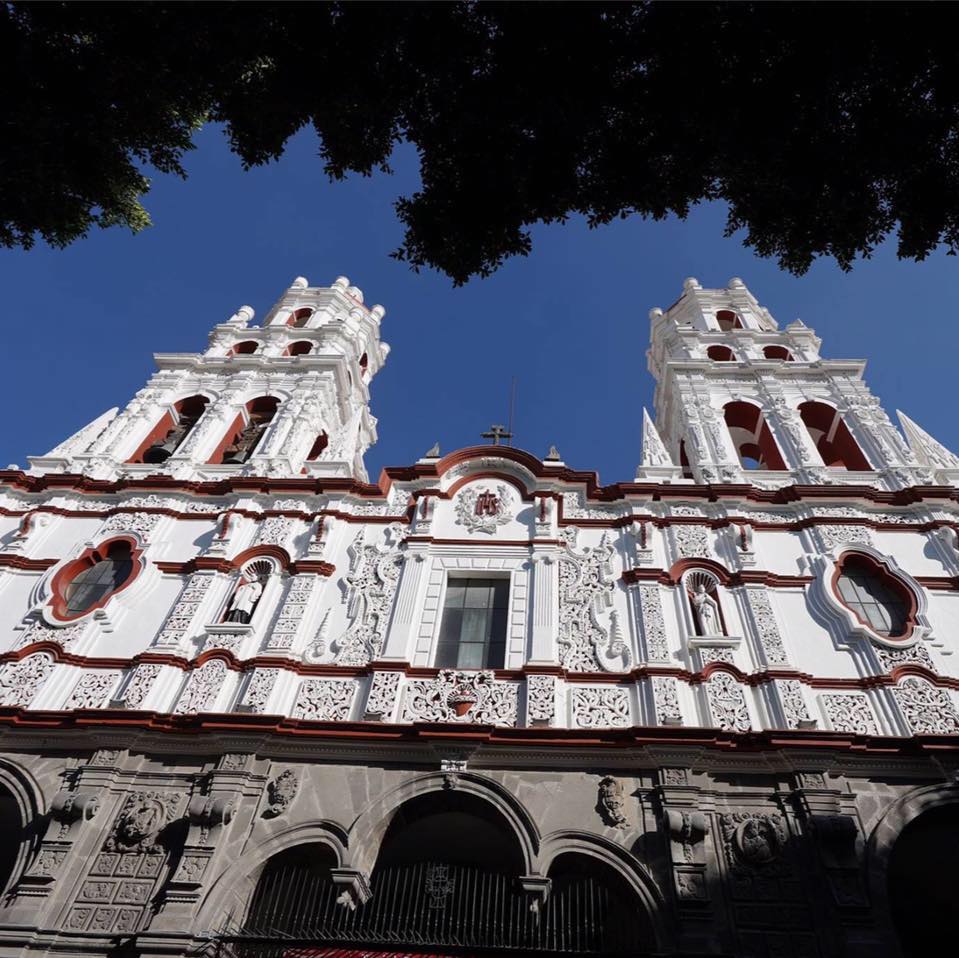
Sanctuary of the Lady of Remedios
At the top of a hill in Cholula sits this big orange church. It was settled on an important archaeological area, on top of one of the largest pyramids of Latin America. It began as a very small church back in the late 1500s, but after an earthquake in 1864 it was rebuilt as a monumental construction.
